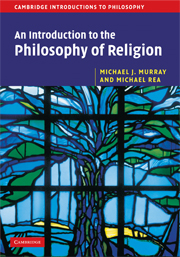7 - Religion and science
Published online by Cambridge University Press: 05 June 2012
Summary
In 1615 Galileo was reeling from the first round of public condemnation of his view that the earth was on the move. Despite the traditional position of the Roman Catholic Church that the earth sits motionless in the center of the heavens, Galileo's observations convinced him that it was not so. Nonetheless, Galileo regarded himself as a devout Christian and, as a result, he was keen to find a way to reconcile his religious commitments with his newfound scientific discoveries. His way of doing so was to conclude that the Bible does not in fact teach what Church authorities claimed. In fact, in his view, the Bible did not aim to teach scientific truths at all. In Galileo's words:
Since the Holy Ghost did not intend to teach us whether heaven moves or stands still, whether its shape is spherical or like a discus or extended in a plane, nor whether the earth is located at its center or off to one side, then so much the less was it intended to settle for us any other conclusion of the same kind … I would say here something that was heard from an ecclesiastic of the most eminent degree: “That the intention of the Holy Ghost is to teach us how one goes to heaven, not how heaven goes.”
The connection between science and religion is, of course, not simply a historical curiosity but also one of substantial contemporary importance.
- Type
- Chapter
- Information
- An Introduction to the Philosophy of Religion , pp. 193 - 226Publisher: Cambridge University PressPrint publication year: 2008



